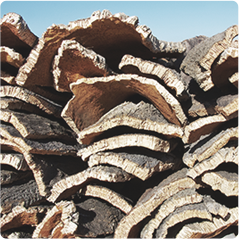 |
Renewable
These materials come from natural sources that can be replenished or regenerated within a relatively short period. Examples include wood from responsibly managed forests, bamboo, cork, and certain bio-based polymers derived from plants or algae.
|
 |
Recycled or Upcycled
Materials that are made from post-consumer or post-industrial waste that has been diverted from landfills and reprocessed into new products. Examples include recycled metals, glass, plastic, and paper, as well as upcycled materials such as reclaimed wood or repurposed textiles.
|
 |
Low Impact
Produced using processes that minimize energy consumption, emissions, and waste generation. They often involve eco-friendly manufacturing techniques,such as water-based or solvent-free processes, as well as the use of renewable energy sources like solar or wind power.
|
 |
Non-Toxic and Biodegradable
These materials are free from harmful chemicals, toxins, or additives that can pose risks to human health or the environment. They break down naturally over time, reducing pollution and environmental contamination. Examples include organic cotton, hemp, wool, and certain biodegradable plastics derived from plant starches or algae.
|
 |
Durable and Long-Lasting
Materials that are designed to withstand wear and tear, extending their lifespan and reducing the need for frequent replacement. Durability helps minimize resource consumption and waste generation over time, making these materials more environmentally sustainable in the long run.
|
 |
Certified and Ethically Sourced
These materials are sourced from suppliers and manufacturers that adhere to recognized standards and certifications for environmental and social responsibility. Examples include Forest Stewardship Council (FSC) certified wood, Fair Trade certified cotton, and Cradle to Cradle certified products.
|










 Promotional Products & Apparel
Promotional Products & Apparel
 Shop All Categories
Shop All Categories
 All
All








